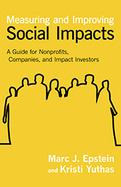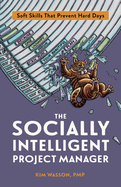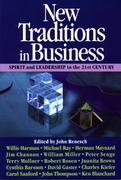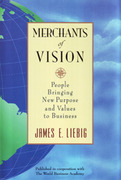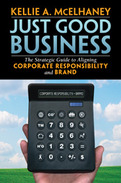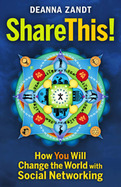- Cowritten by the author of Making Sustainability Work , a book that revolutionized best practices in sustainability and has been widely adopted in boardrooms and classrooms
- Offers a detailed, reliable, and proven approach to rigorously evaluating and increasing the social impact of philanthropic efforts
- Based on interviews with over sixty foundations, nonprofits, corporations, and investment firms and filled with real-life examples
The world is beset with enormous problems that desperately need solutions. And as a nonprofit, NGO, foundation, impact investor, or socially responsible company, your organization is on a mission to provide those solutions.
But what exactly should you do? And how will you know whether it's working? Too many people assume that good intentions will result in meaningful actions and leave it at that. But thanks to Marc Epstein and Kristi Yuthas, social impact can now be evaluated with the same kind of precision achieved for any other organizational function.
Based on years of research and analysis of field studies from around the globe, Epstein and Yuthas offer a five-step process that will help you gain clarity about the impacts that matter most to you and will provide you with methods to measure and improve those impacts. They offer a systematic approach to deciding what resources you should invest, what problem you should address, and which activities and organizations you should support. Once you've made those decisions, they provide tools, frameworks, and metrics for defining exactly what success looks like, even for goals like reducing global warming or poverty that are extremely difficult to measure. Then they show you how to use the data you've gathered to further develop and increase your social impact.
Epstein and Yuthas personally interviewed leaders at over sixty different organizations for this book and include examples from nearly a hundred more. This is unquestionably the most complete, practical, and thoroughly researched guide to taking a rigorous, data-driven approach to expanding the good you do in the world.
High-performing teams don't happen by magic. You need processes that are designed in a socially intelligent way if your team is going to overcome the modern world's tough challenges with coordination. To be a star project manager, you have to communicate with people in their individual learning styles, provide accountability in ways that won't be demotivating, and run meetings and minutes that people won't tune out. Your processes must be constructed in ways that respect the complex realities of social dynamics step by step.
You have to know your team before you can motivate them, and you have to motivate them before you can manage them. In this book are foolproof techniques to make sure your team connects with you, each other, and everyone they need to get the job done. After all, a team should be more than the sum of its parts—and it's up to the project manager to provide the glue that holds it all together.
A fundamental transformation-what many are calling a "paradigm shift"-is underway today in our business and work world. This transformation goes beyond the traditional quest for productivity and profit to embrace such issues as achieving more congruence between our spiritual values and our work, creating a more caring and loving workplace, empowering people to unleash their full creativity and vision at work, and recognizing the global and social responsibilities of business.
This book brings together fifteen of the foremost visionary thinkers about these new business traditions. These visionaries include leading futurists, such as Willis Harman; authors of important new books, such as Peter Senge, author of The Fifth Discipline: The Art and Practice of the Learning Organization; leaders of influential organizations in promoting new paradigm thinking, such as Charles Kiefer, chairman of Innovation Associates; and creators of innovative business and academic programs, such as Michael Ray, developer of the path-breaking Stanford University course on "New Paradigm Business." New Traditions in Business is the first collection in one book of their seminal writings.
Part I describes the historical roots and current signs of the transformation o how the new paradigm differs from traditional business practice o the shifts in human consciousness that form the context for the transformation o the role of spiritual values, vision, and community in the new business culture.
Part II details specific strategies for business transformation: new leadership roles to build learning organizations o the qualities of truly healthy companies o fostering community in corporations o steps for putting global thinking into practice in business o developing and communicating visionary leadership o creating empowered workplaces oenabling people to tap their full creative powers o keys to practicing ethical behavior in business.
1994
In our time of dramatic worldwide change, can business leaders meet the challenges of the marketplace and the needs of people, communities, and the planet? Merchants of Vision profiles 40 business leaders who are successfully working to do just that.
James Liebig interviewed dozens of business women and men in 70 organizations from 14 countries. He found executives, entrepreneurs, CEOs, and consultants who recognize business's pervasive global influence and have found ways to use that influence to affect positive change in people's lives and meaningful growth in their businesses. In Merchants of Vision they share their beliefs, experiences, and creative actions.
Visionary yet down-to-earth, these real-life portraits provide viable business strategies for:
o enhancing social equity,
o protecting the natural environment,
o fostering human creativity,
o serving higher purposes, including spiritual, service, and community values,
o behaving ethically,
o providing transformational leadership.
Representing a variety of business enterprises in the United States, Latin America, Europe, and Asia, innovators profiled include, for example:
o Elliot Hoffman, president of Just Desserts in San Francisco;
o Jacqueline Cambata, president of Phoenix Chemical in Virginia;
o Mara Adela Palcos, director of Rio Abierto Institute in Buenos Aires;
o Marjorie Kelly, editor and publisher of Business Ethics magazine;
o Eckart J. Wintzen, president of BSO/ORIGIN, computer custom software services in The Netherlands;
o Joe Jaworski, head, Business Environment Section, Shell International Petroleum Co. Ltd., in London, England;
o Jagdish Parikh, managing director, Lemuir Group of Companies in Bombay, India;
o Carol Frenier, president, The Advantage Group, Inc., specialty advertising in Vermont;
o Meryem Le Saget, directeur, Institut de L'Expansion, Group Expansion, business seminars and conferences in Paris, France;
o Heini Lippuner, chairman, executive committee, Ciba-Geigy Limited, chemical manufacturing in Basel, Switzerland;
o Robert V. Adams, president of Xerox Technology Ventures in California.
These are people of action and integrity who sustain themselves with the creative friction between their idealism and their knowledge of the real world. Their experiences-addressing issues of personal responsibility and product quality, expanding markets and shrinking natural resources, technological advancement and cultural preservation-reveal ways businesses must adapt to survive, thrive, innovate, and lead.
- Published in cooperation with the World Business Academy, an international network of progressive business leaders committed to using their business expertise to make a positive difference in the world
- Practical and inspiring portraits of 40 business men and women "walking their talk" by integrating their ideals in the world of commerce
2008
2010
Shows how we can join the conversation online and share our stories to help make the world a better place.
- Shows how both activists and the casually progressive can leverage the power of social networks for social change
- Helps readers maintain credibility, establish new connections, deal with common fears, and have a good time
- Authoritative but aggressively non-technical-like talking to a real person with a great sense of humor who really knows her stuff
Social networks can be so much more than a way to find your high school friends or learn what your favorite celebrity had for breakfast. They can be powerful tools for changing the world. With Share This! both regular folks of a progressive bent and committed activists can learn how to go beyond swapping movie reviews and vacation photos (not that there's anything wrong with that).
At the moment the same kinds of people who dominate the dialog off-line are dominating it online, and things will never change if that doesn't change. Progressives need to get on social networks and share their stories, join conversations, connect with others-and not just others exactly like themselves. It's vital to reach out across all those ethnic/gender/preference/class/age lines that exist even within the progressive camp. As Deanna Zandt puts it, "creating a just society is sort of like the evolution of the species-if you have a bunch of the same DNA mixing together the species mutates poorly and eventually dies off."
But there are definitely dos and don'ts. Zandt delves into exactly what people are and are not looking for in online exchanges. How to be a good guest. What to share. Why authenticity is more important than just about anything, including traditional notions of expertise or authority. She addresses some common fears, like worrying about giving too much about yourself away, blurring the lines between your professional and personal life, or getting buried under a steaming heap of information overload. And she offers detailed, nuts-and bolts "how to get started" advice for both individuals and organizations.
The Internet is upending hierarchies and freeing the flow of information in a way that makes the invention of the printing press seem like an historical footnote. Share This! shows how to take advantage of this unprecedented opportunity to make marginalized voices heard and support real, fundamental change-and, incidentally, have some fun doing it.


